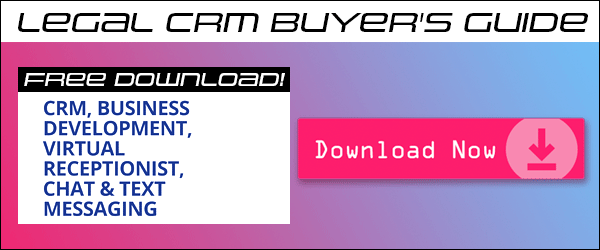Bonus
season
is
around
the
corner!
But
first,
associates
need
to
make
it
through
performance
reviews.
Few
people
look
forward
to
the
review
process.
Some
find
it
stressful
—
after
all,
these
can
be
complicated
conversations.
Others
may
be
tempted
to
dismiss
it
as
pointless,
considering
that
many
firms
award
bonuses
based
primarily
on
class
year
and/or
hours
billed.
But
even
if
you’re
at
a
firm
where
performance
reviews
are
not
a
critical
compensation
driver,
you
should
treat
the
review
process
as
a
valuable
opportunity
to
elicit
helpful
feedback.
Instead
of
viewing
your
performance
review
as
something
to
be
endured,
take
control
of
the
process
to
the
extent
possible.
Put
in
the
time
to
prepare
fully,
clarify
the
feedback
you
receive,
and
reflect
on
the
implications
for
your
broader
career
goals.
Prepare
for
the
review
conversation
It’s
likely
that
your
firm
will
ask
you
to
do
some
form
of
self-evaluation
ahead
of
the
review
process,
but
regardless
of
what
is
formally
expected,
preparation
is
critical
to
achieving
a
productive
conversation.
Questions
to
ask
yourself
include:
-
Did
you
make
your
hours? -
What
sort
of
feedback
have
you
gotten
along
the
way? -
Did
you
have
a
trend
line
this
year
of
improvement,
or
did
you
have
the
same
problems
all
year? -
Did
you
successfully
address
the
feedback
you
received
in
last
year’s
review?
Identify
your
weaknesses,
and
think
about
how
to
frame
them
constructively.
You
want
to
go
into
the
review
conversation
prepared
to
talk
about
what
you
learned
and
what
you’ll
do
differently
next
time.
Demonstrating
that
you
have
a
specific
plan
for
future
improvements
helps
your
evaluator
look
past
any
bumps.
Ahead
of
the
review,
be
sure
to
update
your
deal
sheet
or
representative
matters
list!
In
case
you
don’t
already
have
a
deal
sheet,
see
how
to
make
one
here.
Updating
your
deal
sheet
will
help
you
review
your
work
and
prepare
to
discuss
both
victories
and
setbacks.
It’s
too
easy
and
too
common
for
a
supervisor
to
forget
about
things
you
thought
were
really
important,
so
don’t
rely
on
your
reviewer
to
generate
a
comprehensive
list.
Having
your
deal
sheet
at
your
fingertips
will
make
sure
you’re
prepared
to
advocate
for
yourself.
Listen
carefully
and
seek
clarification
During
the
review
conversation,
remember
to
take
notes
as
best
you
can.
You
can’t
expect
to
remember
it
all,
especially
if
you’re
anxious
or
you
get
feedback
that
surprises
you.
Detailed
notes
will
be
helpful
if
you
need
to
follow
up
on
something
later.
Ideally,
the
feedback
you
receive
will
be
specific
and
actionable,
but
it’s
possible
it
will
be
generic
and
unhelpful.
If
so,
it’s
on
you
to
ask
granular
questions
to
elicit
more
precisely
what
the
reviewer
is
talking
about.
This
applies
to
either
positive
or
negative
feedback,
but
it’s
especially
critical
in
situations
where
the
reviewer
is
expressing
concern
about
your
performance.
Valuable
questions
to
ask
include:
-
Am
I
on
track
for
partnership? -
What
do
I
need
to
do
this
year
to
get
there/stay
there? -
What
specific
skills
would
you
like
to
see
me
acquire
this
year? -
Are
there
any
weaknesses
I
need
to
shore
up? -
Now
that
I’m
a
Xth-year
associate,
how
do
you
see
my
role
on
deals
in
the
coming
year?
In
mentoring
juniors
on
our
team?
In
business
development?
Ask
for
clarification,
especially
about
critiques,
but
don’t
be
defensive.
Remember:
“curious,
not
furious.”
Achieving
this
balance
can
be
really
challenging
for
us
over-achieving
lawyers.
You
may
find
it
helpful
to
practice
reacting
to
feedback
in
advance,
ensuring
you
enter
the
review
conversation
with
some
default
responses.
Ask
A
Manager
has
some
great
advice
on
this,
as
well
as
scripts
for
if
you
disagree
with
the
criticism.
For
example:
“I’m
glad
you’re
telling
me
this.
I’ve
been
letting
some
deadlines
on
this
project
slide
because
I
had
thought
that
projects
x
and
z
were
higher
priorities
and
was
more
focused
there.
But
am
I
looking
at
this
wrong?”
Keep
in
mind
that
it’s
perfectly
acceptable
to
ask
for
a
follow-up
conversation!
You
may
find
that
you
ask
more
effective
questions
after
having
had
some
time
to
gather
your
thoughts.
Ahead
of
the
follow-up,
draft
a
list
of
questions
digging
into
the
specifics
of
how
the
firm
wants
you
to
perform
in
the
next
year.
Reflect
on
your
broader
career
trajectory
Although
the
review
process
is
principally
about
your
performance
in
your
current
role
at
your
current
firm,
don’t
forget
to
reflect
on
the
bigger
picture.
The
end
of
the
year
is
a
great
time
to
consider
whether
your
firm
remains
the
best
setting
to
achieve
your
career
goals.
Are
you
getting
the
work
you
want?
How
do
you
feel
about
your
professional
development?
Have
you
found
your
people
at
this
firm?
Are
you
content?
If
not,
keep
in
mind
that
other
firms
would
be
happy
to
have
you.
I’d
love
to
help
you
think
through
your
options
or
connect
you
with
one
of
my
colleagues
in
your
area.
Good
luck!













 Chris
Chris


